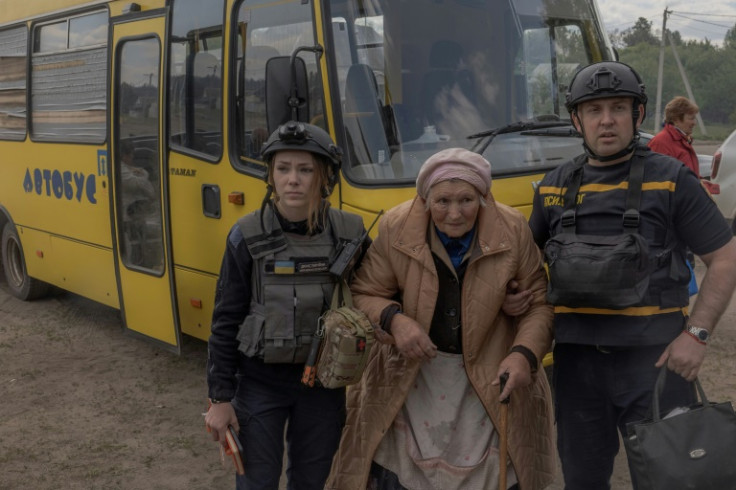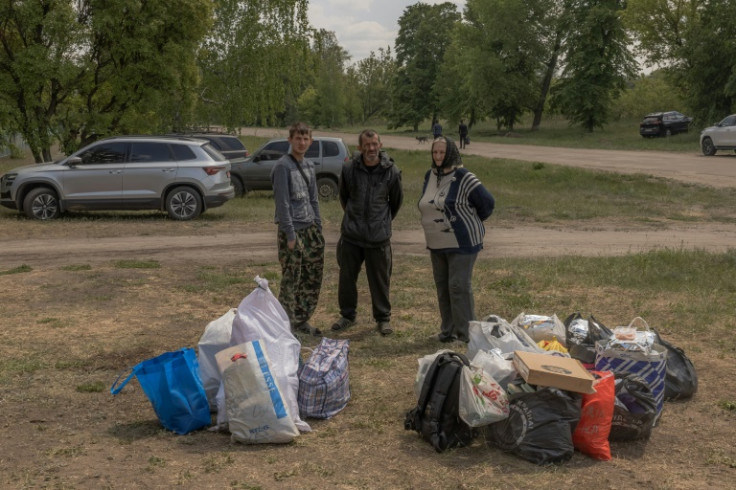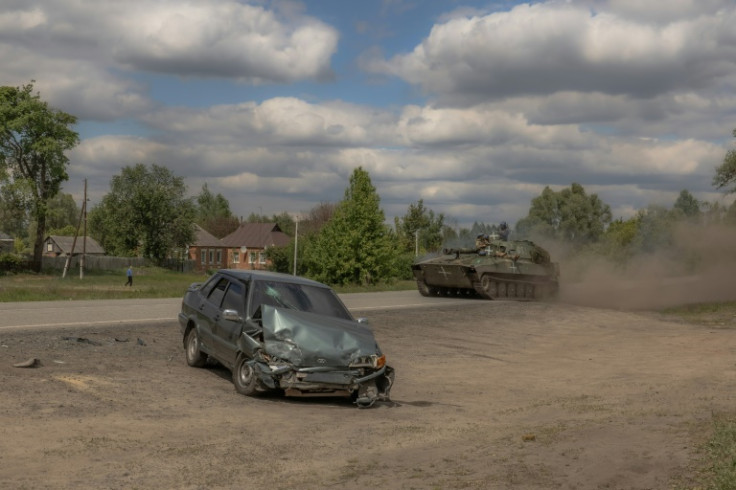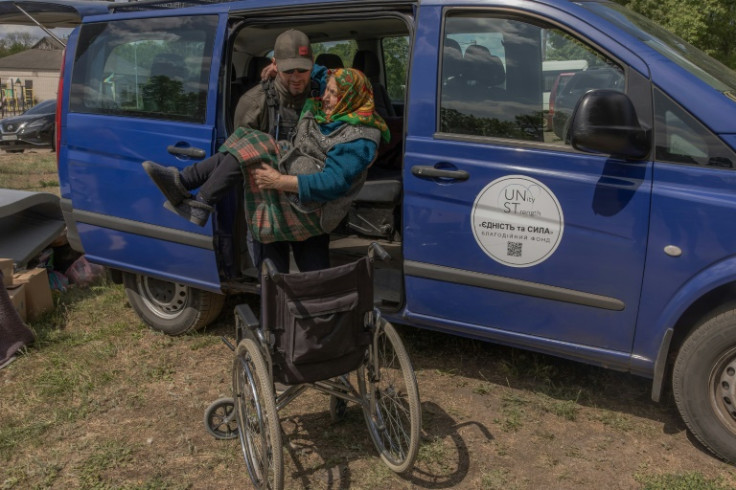
Lyuda Zelenskaya and Liuba Konovalova, both in their 70s, held each other through "terrifying" Russian attacks on their village near Vovchansk in Ukraine's Kharkiv region, where Russia launched a surprise ground offensive.
"Lyuda was hugging my head, she was holding me like this," 70-year-old Konovalova recounted, embracing her friend in return.
Locals in the area -- like the inseparable pair -- have seen intensifying strikes over the past months.
But the launch of Russia's biggest ground operation in the region since 2022 forced them to evacuate.
Konovalova and Zelenskaya lived together in a house belonging to their son and daughter, who are married to each other and moved away after the war began.
"We weren't going to leave. Home is home," said 72-year-old Zelenskaya, a trembling cat named Zhora in her arms.
Konovalova effusively described their cherished two-storey house.
"In the yard there are beds of roses in bloom, when you enter you see flowers everywhere. And trees are growing next to the wall -- cherries, apricots, everything. And grapes all around."
All of that was gone, she said.
A "really terrifying night" of endless explosions convinced them to say goodbye.
They were now waiting near Vovchansk at a first gathering point before being evacuated to Kharkiv's regional capital.
Volunteers there assisted evacuees, mostly elderly and disoriented, carefully helping them to wooden benches and taking initial registration details.
One volunteer arrived, slamming the door of his car.
"I haven't seen anything like this since Bakhmut," he said, referring to the industrial city in the eastern Donetsk region that has become synonymous with devastation.
It fell in May 2023 to Russian forces, which had tried to seize it for months by razing it to the ground, using scorched earth tactics.
"Like Bakhmut, like Avdiivka, and like now around Kharkiv -- this is their only method," the head of the region's police Volodymyr Tymoshko said.
In comparison to the Donetsk region, which bore the brunt of the fighting this year, Kharkiv had been relatively spared.
It was mostly under the control of Ukrainian forces since they pushed back invading Russian troops in autumn 2022.
Ukrainian officials had warned for weeks that Moscow might try to attack its northeastern border regions while aerial attacks intensified.
The launch of a limited operation was not "terribly surprising" but its aims are still unclear, said Olivier Kempf, associate fellow at the Foundation for Strategic Research.
Kharkiv's regional capital is an "important and symbolic city... that Ukrainians want to defend at all costs," Kempf said.
"This is not about putting Kharkiv under siege, but rather about attracting reserves busy elsewhere," explained the expert.
Russian forces could try to create a buffer zone near its Belgorod region recently raided by pro-Ukrainian units or divert Ukraine's resources from the Donetsk region.
They may also be aiming toward Kupiansk, he said.
Several military officials acknowledged the situation had worsened.
"Russian forces are now almost in Vovchansk, near the outer streets of the city," police chief Tymoshko said, adding Moscow's troops were approaching from three directions.
He said police continued evacuations, going as close as a few hundred metres from the line of contact.
More than 4,500 people have been evacuated in the region, emergency services said.
Vans and buses kept dropping people off at the gathering point near Vovchansk.
Among them was 68-year-old Zoia Sergiyenko.
"I am not afraid of death... but too bad, I'd like to live a bit more," she said with a chuckle.
She left after supplications from her daughter and as "mortars, shells were flying endlessly... to the point when nerves can't stand it anymore."
"They're all there. All my kin, all those who protected me and are still protecting me."
And before getting on a bus to the city, she had a message to send.
"Let them understand how our hearts beat in peaceful times, and how our hearts still beat under explosions, day and night."











